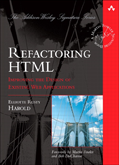I Can Outrun a 767
Tuesday, October 31st, 2006Over long distances, airplanes are the fastest way to travel (at least until we invent teleportation) but over short distances that isn’t true. If you want to get from La Guardia Airport to O’Hare, take a plane; but if you want to go from La Guardia to JFK, take a cab. Over shorter distances still, a bicycle may beat a car; and over the shortest distances, the fastest way to get somewhere is usually walking. Terry Pratchett explained it well in Interesting Times:
Of the three things that most people know about the horse, the third is that over a short distance, it can’t run as fast as a man. As Rincewind had learned to his advantage, it has more legs to sort out.
You naturally choose your mode of transport according to the distance you plan to travel. A few hundred meters or less, walk. A kilometer or two, take a horse (or more likely these days, a bicycle). 10K to a few hundred kilometers, take a car. And beyond a few hundred kilometers, airplane is the fastest choice; and the longer the journey the better a choice it becomes.
Programming is much the same. (more…)
